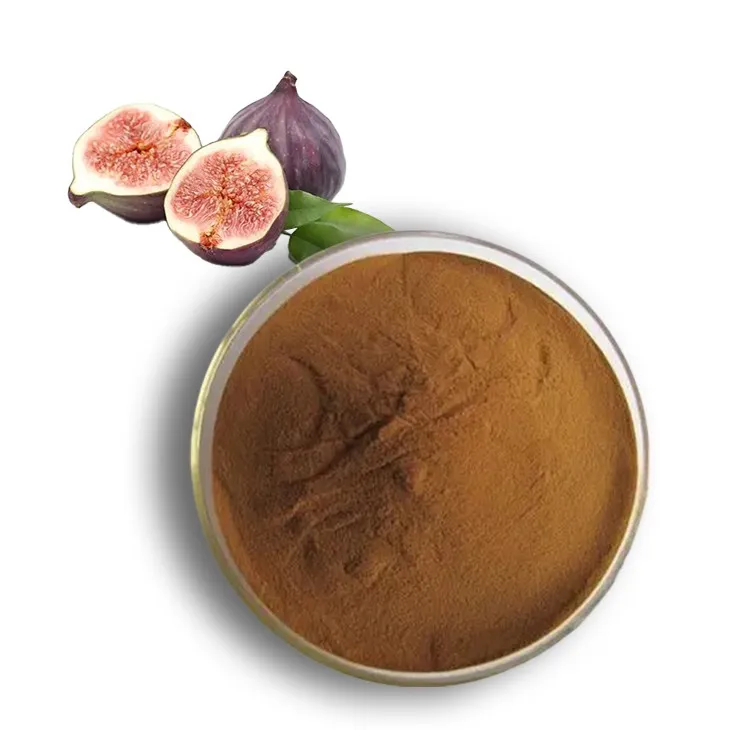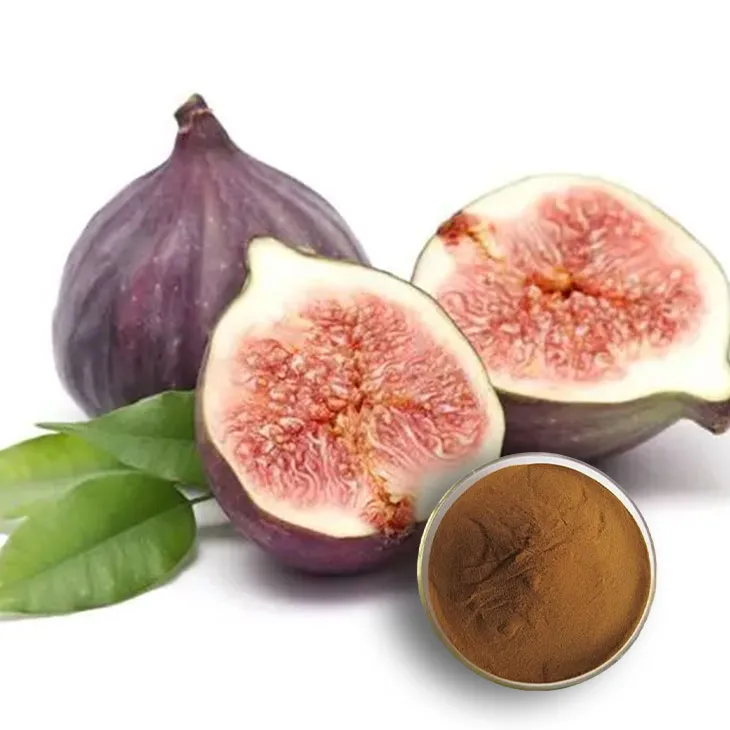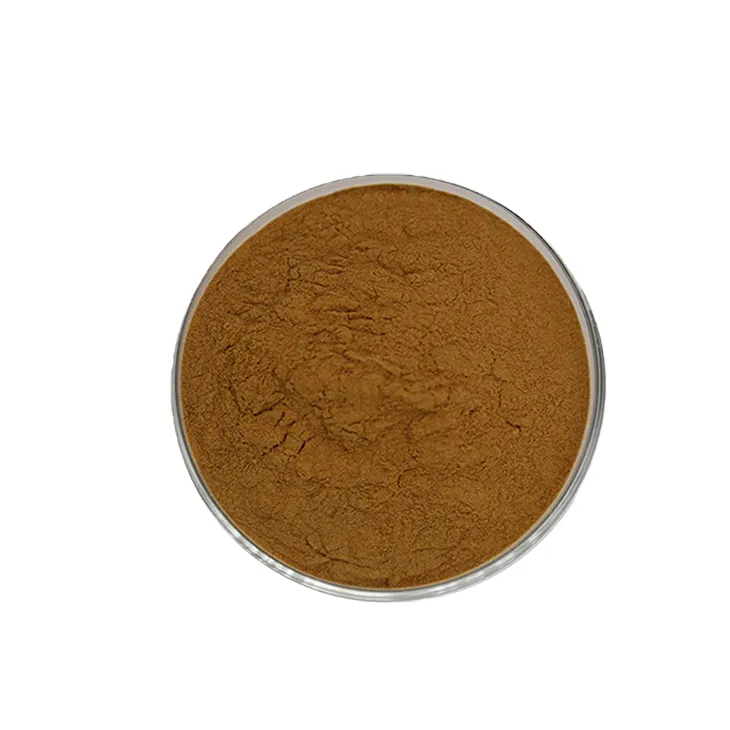- 0086-571-85302990
- sales@greenskybio.com
Only cooperate with the best contract manufacturers of fig extracts.
2024-12-20

Introduction
Fig Extracts have gained significant popularity in various industries, including food, cosmetics, and pharmaceuticals. As the demand for high - quality Fig Extracts continues to rise, it becomes crucial for businesses to partner with the best contract manufacturers. This article will explore the essential factors for choosing the optimal contract manufacturers for Fig Extract, such as raw material sourcing, manufacturing techniques, and regulatory compliance, highlighting why it is vital to limit partnerships to the best in the business.

Raw Material Sourcing
1. Quality of Figs
- The quality of the figs used as raw materials is of utmost importance. High - quality figs should be fresh, free from pests and diseases, and have a rich flavor profile. Contract manufacturers that source their figs from reliable and reputable suppliers are more likely to produce superior fig extracts.
- For example, figs grown in specific regions known for their ideal climate and soil conditions may have better taste and nutritional content. Manufacturers who have established relationships with farmers in these regions can ensure a consistent supply of top - notch figs.
- Different sourcing locations can impact the quality and characteristics of the figs. Some areas may have a higher prevalence of certain varieties of figs that are more suitable for extraction purposes.
- Sustainable sourcing is also a key consideration. Manufacturers that source figs from regions with sustainable farming practices not only contribute to environmental conservation but also ensure the long - term availability of high - quality raw materials. This may include areas where organic farming methods are employed, reducing the use of pesticides and fertilizers that could potentially contaminate the figs.
- Effective traceability of the raw materials is essential. In the event of any quality issues or recalls, being able to trace the origin of the figs used in the extract can help in taking appropriate measures quickly.
- Contract manufacturers should have a robust system in place to track the journey of the figs from the farm to the production facility. This includes documentation of harvesting times, transportation details, and storage conditions.

Manufacturing Techniques
1. Extraction Methods
- There are various extraction methods available for fig extracts, such as solvent extraction, supercritical fluid extraction, and cold - press extraction. Each method has its own advantages and disadvantages.
- Solvent extraction is a common method, but the choice of solvent is crucial. Manufacturers need to ensure that the solvent used is safe, food - grade (if applicable), and does not leave any harmful residues in the extract. Supercritical fluid extraction, on the other hand, can be more expensive but offers a purer extract with better preservation of the active compounds in the figs.
- Cold - press extraction is suitable for maintaining the natural flavor and nutritional value of the figs, especially for applications in the food and cosmetics industries where the integrity of the ingredients is highly valued.
- The manufacturing equipment used by contract manufacturers should be of high quality and well - maintained. Modern and advanced equipment can ensure more precise extraction processes, resulting in a more consistent product quality.
- Clean and hygienic facilities are also non - negotiable. Fig extracts are often used in products that are consumed or applied to the body, so strict adherence to good manufacturing practices (GMP) in terms of facility cleanliness, air quality, and waste management is essential. Facilities should be regularly inspected and audited to maintain high standards.
- Throughout the manufacturing process, comprehensive quality control measures should be in place. This includes testing the raw materials upon arrival, monitoring the extraction process parameters, and conducting final product quality checks.
- Analytical techniques such as chromatography (e.g., HPLC - High - Performance Liquid Chromatography) can be used to determine the purity and composition of the fig extract. Manufacturers should also have a system for detecting and rejecting batches that do not meet the specified quality standards.

Regulatory Compliance
1. Industry - Specific Regulations
- Depending on the end - use of the fig extract (e.g., food, cosmetics, pharmaceuticals), different regulatory requirements must be met. For example, in the food industry, fig extracts need to comply with food safety regulations, including maximum residue limits for pesticides and additives.
- In the cosmetics industry, there are regulations regarding the safety of ingredients, labeling requirements, and good manufacturing practices. Pharmaceutical applications of fig extracts are subject to even more stringent regulatory scrutiny, including requirements for clinical trials and approval processes.
- Contract manufacturers should possess relevant certifications, such as ISO certifications (e.g., ISO 9001 for quality management, ISO 22000 for food safety management). These certifications demonstrate their commitment to meeting international standards of quality and safety.
- Compliance with industry - specific standards, such as those set by the American Herbal Products Association (AHPA) for herbal extracts, can also enhance the credibility of the fig extract produced. Manufacturers should stay updated on the latest regulatory changes and ensure continuous compliance with these standards.
- Proper documentation and record - keeping are essential for regulatory compliance. Manufacturers should maintain records of all aspects of the manufacturing process, from raw material sourcing to final product distribution.
- This includes records of quality control tests, batch numbers, production dates, and any changes made to the manufacturing process. In the event of an audit or regulatory inspection, having complete and accurate documentation can prevent potential issues and ensure a smooth operation.
Benefits of Partnering with the Best
1. Product Quality
- The best contract manufacturers are dedicated to producing high - quality fig extracts. Their attention to detail in raw material sourcing, manufacturing techniques, and quality control results in a product that meets or exceeds industry standards.
- High - quality fig extracts can enhance the performance of end - products, whether it is a food product with improved flavor, a cosmetic with enhanced skin - benefiting properties, or a pharmaceutical with more effective therapeutic effects.
- Partnering with a reputable contract manufacturer can enhance the brand image of the business using the fig extract. Consumers are more likely to trust products that are made with high - quality ingredients sourced and processed by reliable manufacturers.
- A positive brand image can lead to increased customer loyalty, market share, and ultimately, business success. In contrast, partnering with a sub - par manufacturer can damage the brand's reputation if there are issues with product quality or regulatory compliance.
- The best contract manufacturers often invest in innovation and research. They may be involved in exploring new extraction methods, studying the health benefits of fig extracts more deeply, or developing new applications for fig extracts.
- By partnering with such manufacturers, businesses can stay at the forefront of industry trends and gain a competitive edge. For example, a manufacturer that discovers a new way to extract a more potent form of a bioactive compound from figs can offer a unique selling point for products containing the fig extract.
Challenges in Finding the Best
1. Market Saturation
- The market for contract manufacturing of fig extracts may be saturated with numerous players. This makes it difficult to identify the truly outstanding manufacturers among the many options available.
- Some manufacturers may make false claims about their capabilities or quality standards, further complicating the search for the best. Businesses need to conduct thorough research and due diligence to separate the reliable manufacturers from the less - than - ideal ones.
- While it is important to partner with the best, cost can also be a significant factor. The best contract manufacturers may charge higher prices due to their investment in quality control, research, and compliance.
- Businesses need to find a balance between cost and quality. However, it should be noted that cutting costs by choosing a cheaper, lower - quality manufacturer can lead to long - term problems, such as product recalls or loss of market share due to inferior product quality.
- Depending on the location of the business and the contract manufacturer, geographical limitations can pose challenges. For example, long - distance transportation of figs or fig extracts can increase costs and potentially affect product quality due to extended transit times.
- There may also be differences in regulatory requirements between different regions, which can add complexity to the partnership. However, with proper planning and communication, these challenges can be overcome.
Conclusion
In conclusion, when it comes to fig extract contract manufacturing, partnering with the best is not a luxury but a necessity. The factors of raw material sourcing, manufacturing techniques, and regulatory compliance are all crucial elements to consider. By carefully evaluating potential contract manufacturers based on these factors, businesses can ensure that they are obtaining high - quality fig extracts, protecting their brand image, and staying competitive in their respective industries. Despite the challenges in finding the best manufacturers, the long - term benefits far outweigh the short - term difficulties. It is essential for businesses to be vigilant in their search and make informed decisions when choosing a contract manufacturer for fig extract production.
FAQ:
Q1: What are the key aspects to evaluate in raw material sourcing for fig extract contract manufacturers?
When evaluating raw material sourcing in fig extract contract manufacturers, one should consider factors such as the origin of the figs. Figs from regions known for high - quality produce are preferable. The freshness of the figs upon arrival at the manufacturing facility is also crucial. Additionally, the traceability of the raw materials is important. This means being able to track the journey of the figs from the farm to the manufacturing plant. Ethical and sustainable sourcing practices are also aspects to look into, ensuring that the farmers are treated fairly and the environment is not damaged during the cultivation process.
Q2: How can one determine if a fig extract contract manufacturer has advanced manufacturing techniques?
To determine if a fig extract contract manufacturer has advanced manufacturing techniques, one can look at their equipment. Modern, well - maintained machinery is often a sign of advanced techniques. Another aspect is their research and development capabilities. Manufacturers that invest in R & D are more likely to have innovative manufacturing processes. The quality control measures in place also indicate the level of manufacturing sophistication. Stringent quality control, including testing at multiple stages of the production process, shows that the manufacturer is committed to producing high - quality fig extract. Additionally, their ability to scale production while maintaining quality is a good indicator of advanced manufacturing techniques.
Q3: Why is regulatory compliance so important when choosing a fig extract contract manufacturer?
Regulatory compliance is extremely important when choosing a fig extract contract manufacturer. Firstly, it ensures that the product is safe for consumption. Non - compliant manufacturers may cut corners in areas such as ingredient quality or production processes, which could pose health risks. Secondly, compliance with regulations helps in the marketability of the product. In many regions, products need to meet certain standards to be sold legally. If a manufacturer is not compliant, the final product may face legal issues and difficulties in distribution. Moreover, regulatory compliance reflects the professionalism and reliability of the manufacturer. It shows that they follow industry - accepted norms and are committed to operating within the legal framework.
Q4: What are the potential risks of not partnering with the best fig extract contract manufacturers?
The potential risks of not partnering with the best fig extract contract manufacturers are numerous. Quality may be compromised, leading to a sub - standard product. This can result in customer dissatisfaction and a negative impact on the brand. There may be issues with regulatory compliance, which could lead to legal problems and product recalls. Non - top - tier manufacturers may also lack the efficiency and innovation in production processes, resulting in higher costs and longer production times. They may not have reliable supply chains, which can lead to shortages of the fig extract product.
Q5: How can one ensure a long - term and successful partnership with the best fig extract contract manufacturers?
To ensure a long - term and successful partnership with the best fig extract contract manufacturers, clear communication is essential. Both parties should have a mutual understanding of the product requirements, quality standards, and delivery schedules. A well - defined contract that outlines the responsibilities of each party is also crucial. This includes aspects such as intellectual property rights, confidentiality, and payment terms. Regular audits of the manufacturer can help ensure that they continue to meet the required standards. Building a relationship based on trust and mutual benefit, such as through joint marketing efforts or sharing of industry insights, can also contribute to a long - term successful partnership.
Related literature
- Fig Extract Production: Best Practices in the Industry"
- "The Importance of Quality in Fig Extract Manufacturing"
- "Regulatory Requirements for Fig Extract Contract Manufacturing"
- ▶ Hesperidin
- ▶ citrus bioflavonoids
- ▶ plant extract
- ▶ lycopene
- ▶ Diosmin
- ▶ Grape seed extract
- ▶ Sea buckthorn Juice Powder
- ▶ Beetroot powder
- ▶ Hops Extract
- ▶ Artichoke Extract
- ▶ Reishi mushroom extract
- ▶ Astaxanthin
- ▶ Green Tea Extract
- ▶ Curcumin Extract
- ▶ Horse Chestnut Extract
- ▶ Other Problems
- ▶ Boswellia Serrata Extract
- ▶ Resveratrol Extract
- ▶ Marigold Extract
- ▶ Grape Leaf Extract
- ▶ blog3
- ▶ blog4
- ▶ blog5
-
Seven Trends of Cocoa Extracts.
2024-12-20
-
Seven Trends of Dandelion Leaf Extract.
2024-12-20
-
Cassia Seed Extract
2024-12-20
-
Lotus leaf extract
2024-12-20
-
Black Garlic Extract
2024-12-20
-
Tongkat Ali Extract Powder
2024-12-20
-
Quercetin
2024-12-20
-
Nettle Root Extract
2024-12-20
-
melatonin extract
2024-12-20
-
Selenium yeast
2024-12-20
-
Hops Extract
2024-12-20
-
Sugarcane Extract
2024-12-20





















